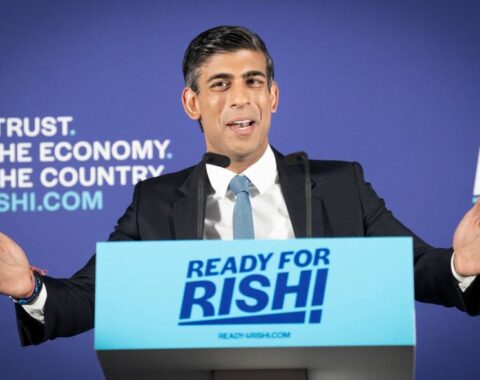Article Published in LinkedIn.
INTRODUCTION
The Hon’ble Supreme Court in its recent judgment, Union of India v. Ashish Agarwal, 2022 SCC OnLine SC 543, did the great balancing act of protecting the interests of both the Revenue and the assesses. The issue involved in the present case was regarding the changes brought in by the Finance Act 2021, in Sections 148-151 of the Income Tax Act, 1961, which deal with the reassessment and recomputation of income where the Revenue feels that an individual’s income has escaped assessment. The SC in it’s judgment, deemed the notices issued U/s 148 of the unamended IT Act, to be show cause notices construed to be issued under the newly introduced Section 148 A(b) of the IT Act. After the effective date of amendment i.e., 01.04.2022, 90,000 reassessment notices were issued under the erstwhile section 148 of the IT Act, which were challenged in various HC’s in more than 9,000 Writ Petitions, wherein the order went in favour of the assesses in al the HCs except for the Chhattisgarh HC, which gave an order in favour of the Revenue
ISSUE
The issue was with regards to the status of the reassessment notices issued after 01.04.2021 till 30.06.2021 under the unamended IT Act by the Revenue. The reassessment notices were issued by the Revenue under the bonafide belief that the erstwhile sections 148 -151 of the Income Tax Act, 1961 are still applicable because of the relaxation provided till 30.06.2021 by the government under section 3 of the Taxation and other laws (relaxation and amendment of certain provisions), Act 2020 and further relying on explanations in notifications dated 31st March and 27th April
PURPOSE BEHIND THE AMENDMENTS
The purpose behind introducing the changes in the reassessment proceedings through the Finance Act, 2021 was to streamline and simplify the procedure and also to protect the rights and interests of the assessee. Before the introduction of these amendments the reassessment proceedings gave rise to numerous litigations on the ground that
- No valid ‘reason to believe’ was given, for reopening of assessment
- No tangible/reliable, material/ information in possession of the assessing officer, leading to the belief that the reassessment proceedings have been initiated on the formation of belief or change in the opinion of the assessing officer, which went against the intent behind issuing of notice U/s 148 of the IT Act
- The mandatory procedure as laid down in the case of GKN Driveshafts (India) Ltd., of giving reasons for reopening of assessments and an opportunity to the aseessee of being heard was not being followed
The amendments now provide safeguards before the notice under section 148 of the IT Act is issued. At, every stage prior approval of the specified authority is required, even for conducting the enquiry U/s 148A(a). Only in a case where, the assessing officer is of the opinion that before any show cause notice is issued U/s 148(A)(b) and an opportunity is to be given to the assessee to present his/her case, the assessing officer shall conduct an enquiry, but only with the prior approval of the specified authority. The amended Section 149, governing the time limit for the issuance of notice U/s 148, has also seen reduction in the permissible time limit for issuance of notice to 3 years and only in exceptional cases to 10 years, removing the ambiguity that was prevalent in the erstwhile Section 149
CONTENTION OF THE SUPREME COURT
The Hon’ble SC was of the opinion that a balance has to be struck between the rights of the Revenue and the assesses. It was of the opinion that the Revenue cannot be made to suffer, when it had issued the 90,000 notices under a bonafide belief. Moreover, if the Revenue is penalized the public exchequer would ultimately suffer. The order of the court was as follows -:
(i) The impugned section 148 notices issued to the respective assessees which were issued under unamended section 148 of the IT Act, which were the subject matter of writ petitions before the various respective High Courts shall be deemed to have been issued under section 148A of the IT Act as substituted by the Finance Act, 2021 and will be construed or treated to be show-cause notices in terms of section 148A(b). The assessing officer shall, within thirty days from today provide to the respective assessees information and material relied upon by the Revenue, so that the assesees can reply to the show-cause notices within two weeks thereafter;
(ii) The requirement of conducting any enquiry, if required, with the prior approval of specified authority under section 148A(a) is hereby dispensed with as a one-time measure vis-à-vis those notices which have been issued under section 148 of the unamended Act from 01.04.2021 till date, including those which have been quashed by the High Courts. Even otherwise as observed hereinabove holding any enquiry with the prior approval of specified authority is not mandatory but it is for the concerned Assessing Officers to hold any enquiry, if required;
(iii) The assessing officers shall thereafter pass orders in terms of section 148A(d) in respect of each of the concerned assessees; Thereafter after following the procedure as required under section 148A may issue notice under section 148 (as substituted);
(iv) All defences which may be available to the assesses including those available under section 149 of the IT Act and all rights and contentions which may be available to the concerned assessees and Revenue under the Finance Act, 2021 and in law shall continue to be available.
(v) The present order shall substitute/modify respective judgments and orders passed by the respective High Courts quashing the similar notices issued under unamended section 148 of the IT Act irrespective of whether they have been assailed before this Court or not.
CONCLUSION
Following the judgment, the Revenue can now breathe a sigh of relief as this order saves the Revenue from suffering a huge loss in revenue as the matter involved more than 90,000 reassessment notices which would have gone down the drain, had the Revenue followed the decision of the various High courts striking down the reassessment notices completely. The Hon’ble Supreme Court has, by striking a balance between the interests of the Revenue and the assessees, fulfilled its responsibility of doing complete justice under Article 142 of the Constitution of India (which it had invoked to prevent overburdening of the courts and to put the matter at rest once and for all. The order will also be applicable Pan India)
Now, the ball is in the Revenue’s court, where going further under the amended Income Tax Act it’ll be expected to conduct a fair enquiry before issuing reassessment notices and drop those which do not pass the tests laid down by the new law





